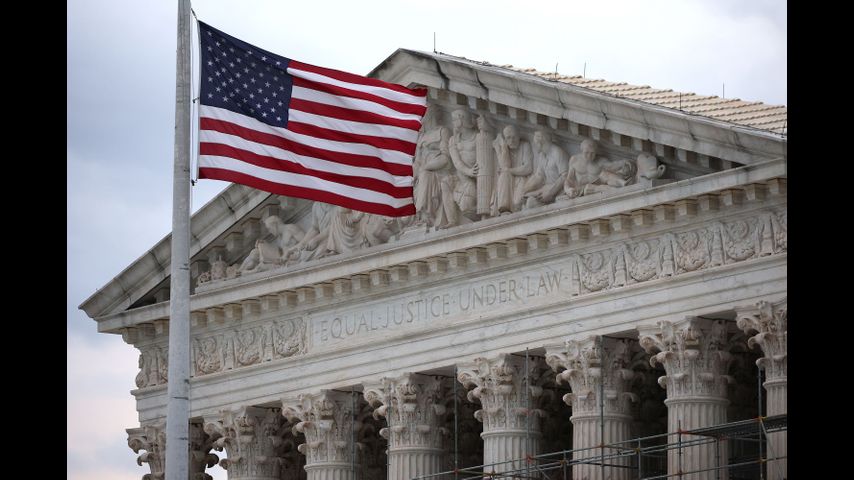Supreme Court could help preserve Obamacare’s no-cost preventive care task force
(CNN) — The Supreme Court on Monday signaled it may uphold a task force that recommends which preventive health care services Obamacare requires to be covered at no-cost, with several conservative justices voicing skepticism about a challenge that is based on how members of the panel are appointed.
At stake is the ability of millions of Americans to access cost-free services under the Affordable Care Act such as cancer screenings, statins that help prevent cardiovascular disease, PrEP drugs that help prevent HIV infections, and counseling referrals for pregnant and postpartum women at increased risk of depression.
The task force’s recommendations were challenged by a Texas business, Braidwood Management, that objected on religious grounds to covering certain preventive services, including the PrEP medications. Braidwood argued that because Congress demanded the task force’s work be “independent” that its members should have been appointed by the president and confirmed by the Senate.
And because of that, it said that recommendations from the panel since the health reform law’s enactment in March 2010 should be thrown out.
But the argument that the board members must be appointed by the president drew skepticism from several key conservatives, most notably Justice Brett Kavanaugh. Kavanaugh said that members of the task force are removable at will by the secretary of Health and Human Services. Truly independent agencies, he noted, typically have legal protections that require a president to show cause before firing members of a board.
“We usually don’t interpret statutes to create independent agencies without some indication that’s stronger than what we have here that this is really protected from presidential … removal,” Kavanaugh said.
Justice Amy Coney Barrett, another conservative, seemed to agree – at one point describing the challengers’ position as “very maximalist.”
Still, several justices left open the possibility that the court might send the case back to the 5th US Circuit Court of Appeals to answer other questions, including which officials Congress thought would appoint the task force members.
It was also unclear how the court will handle earlier recommendations of services that had been made by previously appointed task force members.
Before 2023, the task force members were originally appointed by the director of the Agency for Healthcare Research and Quality, part of HHS.
During the course of the litigation, then HHS Secretary Xavier Becerra “ratified” the earlier appointments. Braidwood argues that the original appointments were unconstitutional and that Becerra’s move didn’t retroactively address potential problems with the recommendations those earlier panels made.
Fight about control of independent agencies
The case, which is on appeal from the conservative 5th Circuit, created an unusual political dynamic. Though initially appealed by the Biden administration, President Donald Trump’s administration has defended the popular provision of Obamacare since taking power this year – despite the president’s years-long campaign to repeal the 2010 health care law.
It also came amid a scorching and separate fight over Trump’s ability to control independent agencies like the National Labor Relations Board.
In a series of decisions in recent years, the Supreme Court has tended to limit the independence of those agencies from the political whims of the White House.
“We don’t go around just creating independent agencies,” quipped Justice Elena Kagan, a member of the court’s liberal wing said. “More often we destroy independent agencies.”
But at least some of the court’s conservatives, including Justice Samuel Alito, questioned how much power the secretary of Health and Human Services has to veto the recommendations of the task force just because he can remove them at will. At one point, Alito described the arguments from Hashim Mooppan, an attorney for the Trump administration, as “jerry-built.”
“If Congress really wanted these task force members to do the bidding of the secretary, isn’t that an incredibly odd way to go about conferring that authority?” Alito asked.
After listening to nearly 90 minutes of oral arguments, Nicholas Bagley, a professor at University of Michigan Law School who specializes in administrative and health law, said the justices seemed to be learning towards the government’s arguments.
“With oral argument wrapping up, it looks like the government is likely to win in Braidwood, saving the constitutionality of the preventive services mandate,” he posted on X, later telling CNN that “the government had a good day in court.”
Those challenging the structure of the task force were represented by Jonathan Mitchell, a well-known conservative lawyer who has been involved in other culture war disputes in court, including a significant abortion case at the Supreme Court, and who represented Trump when he was a presidential candidate in a challenge to the state of Colorado’s attempt to remove him from the ballot.
The challengers’ religious liberties claims were spun off into separate proceedings. The dispute in front of the court Monday focused on the Constitution’s appointments clause, which establishes the president and Senate’s role in appointing and confirming officials that wield significant government power.
A majority of justices expressed “significant skepticism” about the Mitchell’s position, said Andrew Pincus, a partner at the law firm Mayer Brown who filed a brief supporting the government on behalf of the American Public Health Association.
Several of the justices, Pincus said, expressed the view that there’s “plenty of room in the statute to conclude that the secretary of HHS has the power to control whether these recommendations are binding on private parties” through the power to appoint and remove the task force members and to determine whether their recommendations will be binding.
The-CNN-Wire
™ & © 2025 Cable News Network, Inc., a Warner Bros. Discovery Company. All rights reserved.





